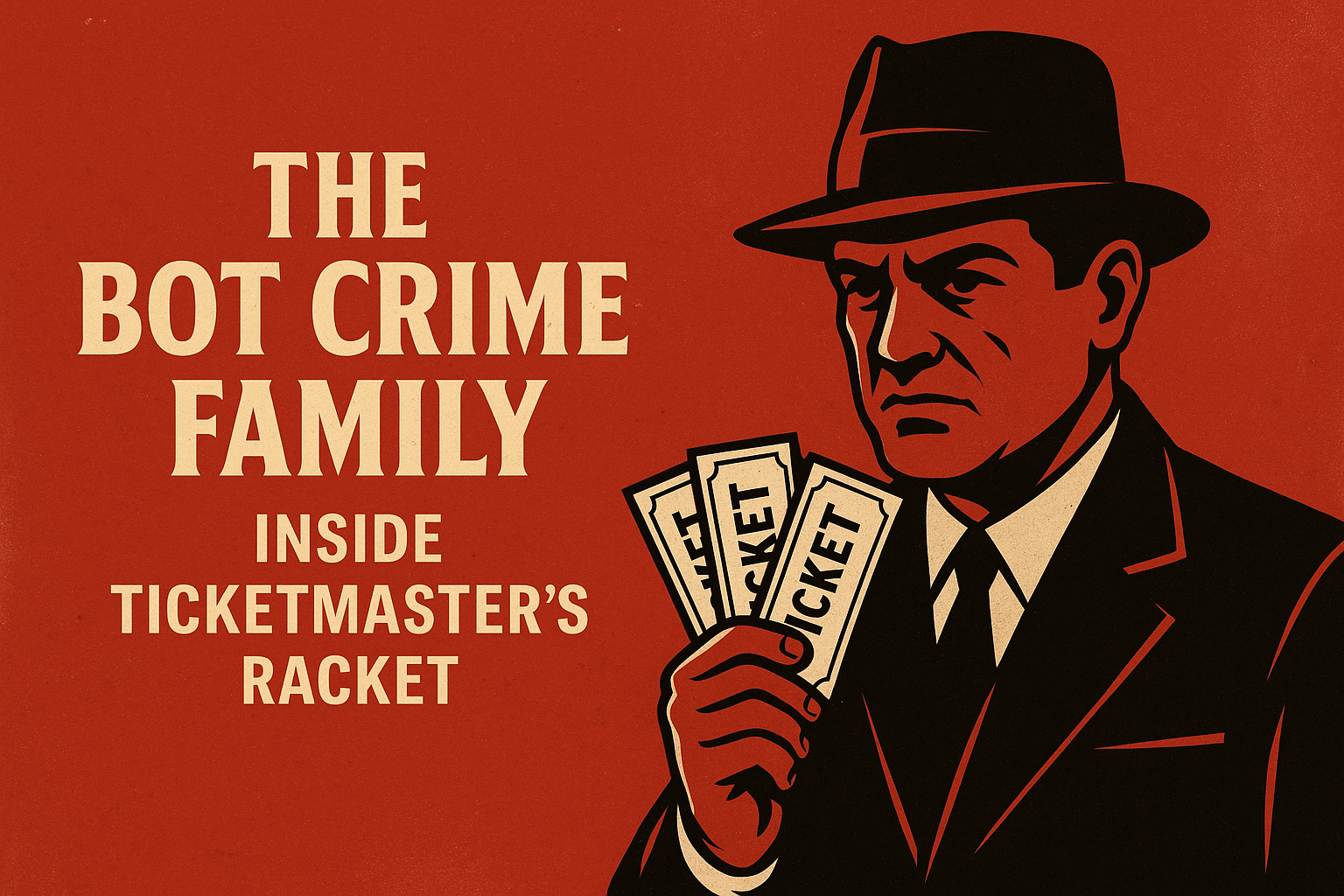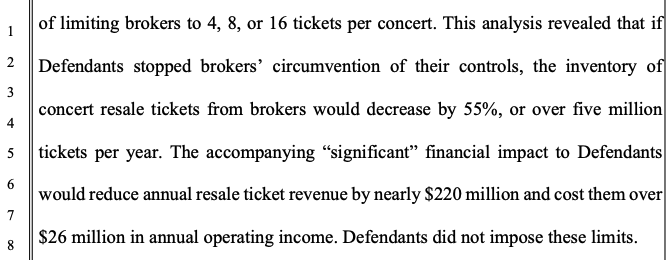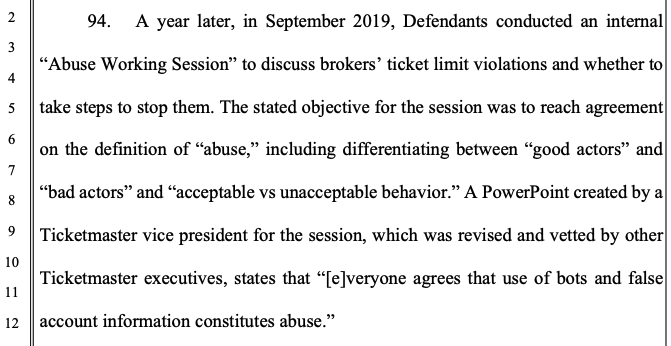The Bot Crime Family: Inside Ticketmaster’s Racket
For years, Ticketmaster has played the innocent victim, telling fans and lawmakers that scalpers and bots were the villains behind sky-high ticket prices. They’ve claimed they are merely helpless bystanders in a technological arms race. But the FTC’s new lawsuit rips the mask off. This isn’t a victim story. This is a mob story.
The complaint shows Ticketmaster didn’t just tolerate bots, it profited from them. It built a vertically integrated racket where every ticket, every resale, and every fee flowed back to the same family business. Like any good mob outfit, chaos wasn’t a problem. Chaos was the business model.
As one Ticketmaster executive admitted, the company “turn[s] a blind eye as a matter of policy” when brokers and bots break its rules (¶15). Because when the family gets paid at every step, why shut the racket down?
Profits Over Everything
The complaint demonstrates Ticketmaster’s complicity. One 2020 study revealed that if the company actually stopped bots and brokers from violating ticket limits, the number of resale tickets would drop by more than half, slashing Ticketmaster’s annual resale revenue by nearly $220 million (¶97). That’s not just a rounding error. That’s hundreds of millions of dollars every single year.
Faced with a choice between protecting fans or protecting profits, Ticketmaster chose profits. Again and again. A 2019 internal “Abuse Working Session” admitted that bots and fake accounts are abuse.
Then Ticketmaster killed anti-bot proposals because they’d cause “serious negative economic impact” (¶93).
This is the heart of the problem: Ticketmaster’s vertical monopoly means the company makes money whether you buy your ticket at face value or on the secondary market at a markup or a discount. It collects fees from brokers when they buy tickets, again when brokers resell tickets, and again from fans who ultimately pay the markup. When you own the talent, the ticketing platform, and have exclusive rights to a venue, stopping bots is detrimental to your business. Plain and simple.
The Triple-Dip Racket
As the FTC puts it, Ticketmaster could “triple dip” on fees for the same ticket. From 2019 to 2024, this racket generated $3.7 billion in resale ticket sales alone (¶16).
First dip: Brokers pay fees when they buy tickets on the primary market.
Second dip: Ticketmaster charges more fees when those tickets are resold on its own secondary market.
Third dip: Fans pay another round of fees when they finally buy the resold tickets .
No wonder the family didn’t want to stop the chaos. The racket was too lucrative.
The Code of Silence
Perhaps the most galling revelation is the hypocrisy. Ticketmaster and its artist and venue allies played the role of public crusaders. Scapegoating “scalpers and bots,” they pushed preposterous price cap policies. All the while, behind closed-doors, Ticketmaster was “tacitly coordinating with them behind closed doors.” (¶109)
It was all theater. Fans got fleeced. The Bot Crime Family got richer. If they passed a price cap, they would profit. If they didn’t pass a price cap, they would continue to profit. Ticketmaster knowingly violated the Better Online Ticket Sales Act for years because it was profitable. It’s hard to believe no one else knew about it. Why did no one come forward? That’s because all the anti-secondary market rhetoric was smoke and mirrors. Ticketmaster designed the system to fail fans because failure was lucrative for them and their favored partners.
Breaking the Family’s Grip: Pass the TICKET Act and MAIN Event Act
The Ticketmaster crime family has run this racket for too long. Its monopoly power has turned live events into a pay-to-play game where bots, brokers, and Ticketmaster itself always win and fans always lose.
It’s time to break up the Live Nation-Ticketmaster crime family, pass the TICKET Act, and pass the MAIN Event Act. Because until then, the family will keep running the same old racket — and fans will keep getting shaken down.





